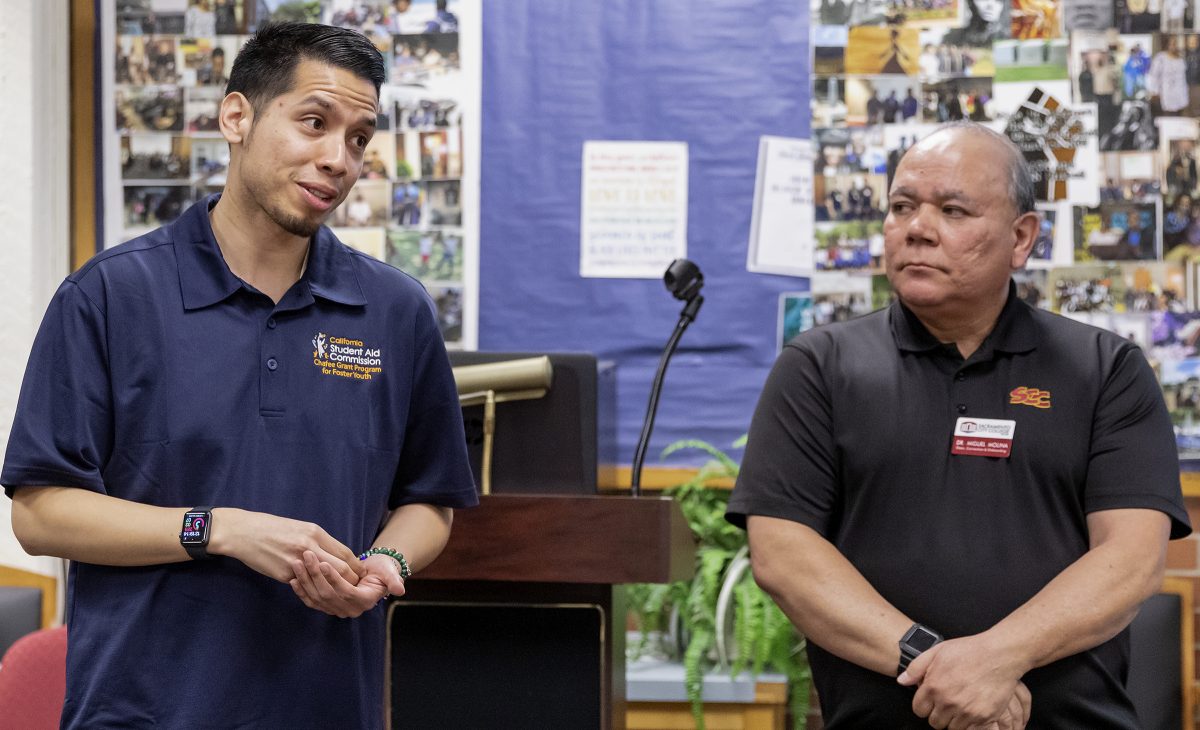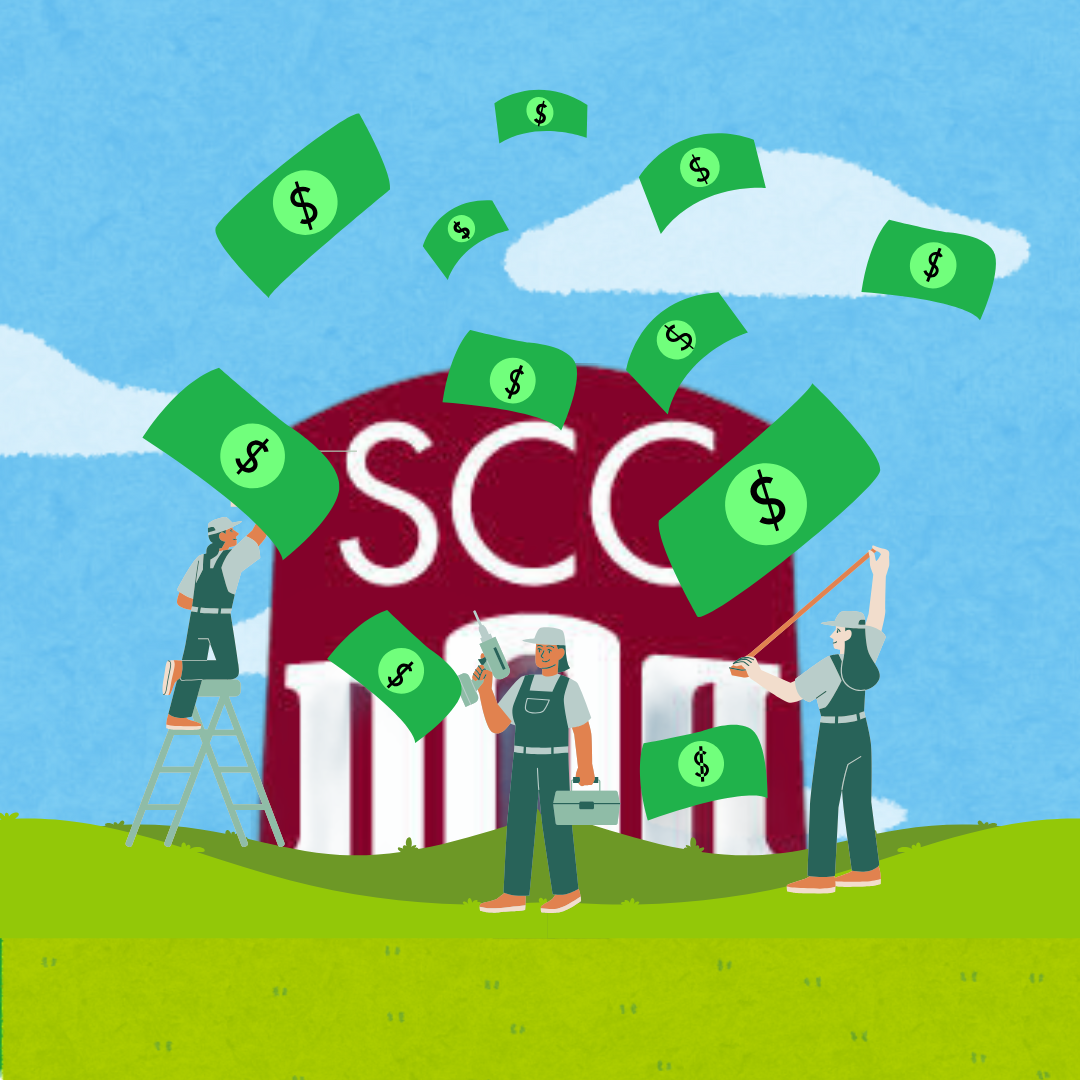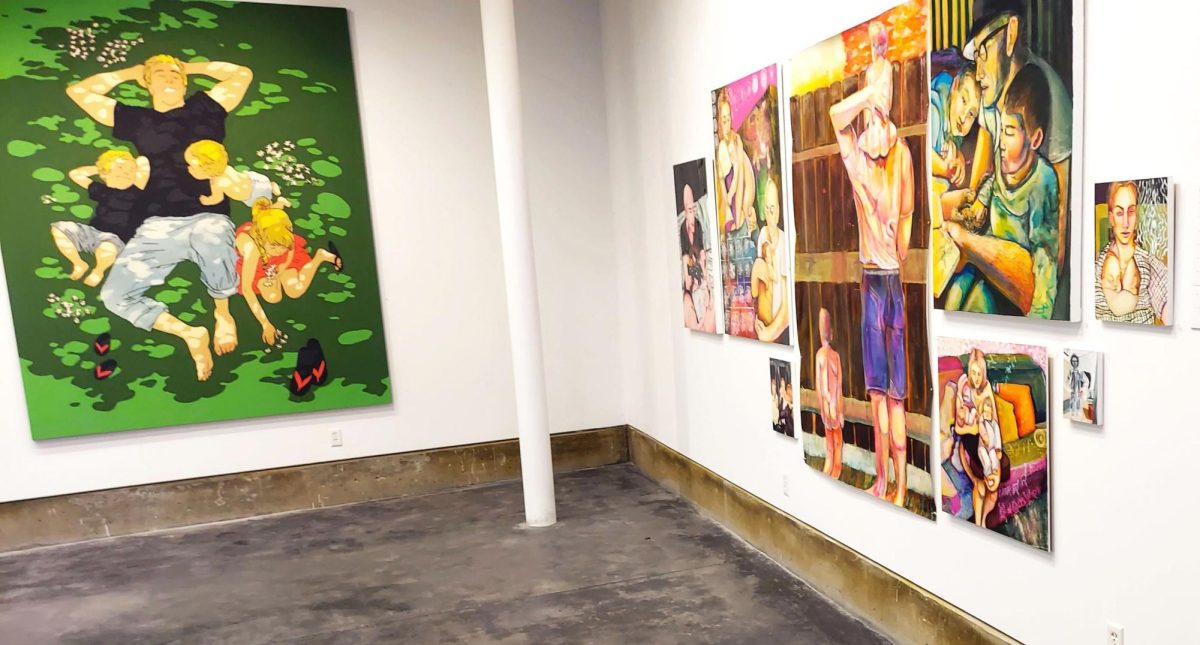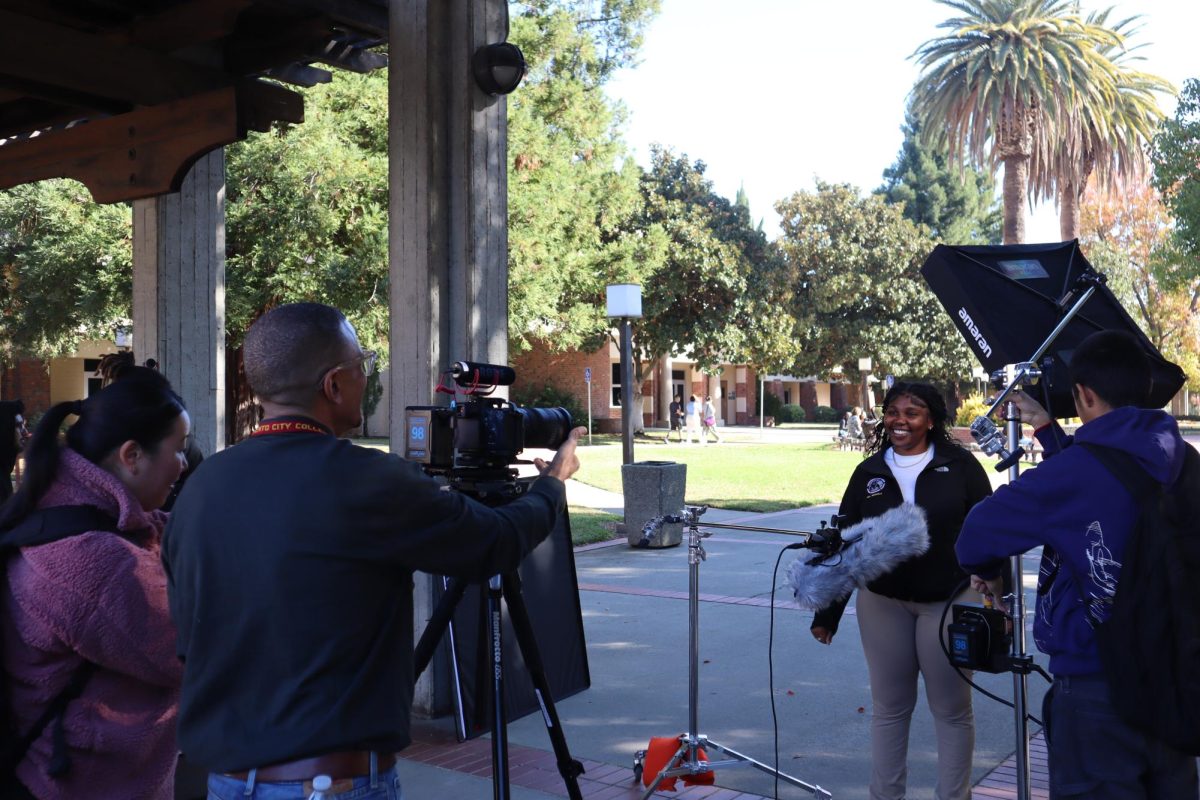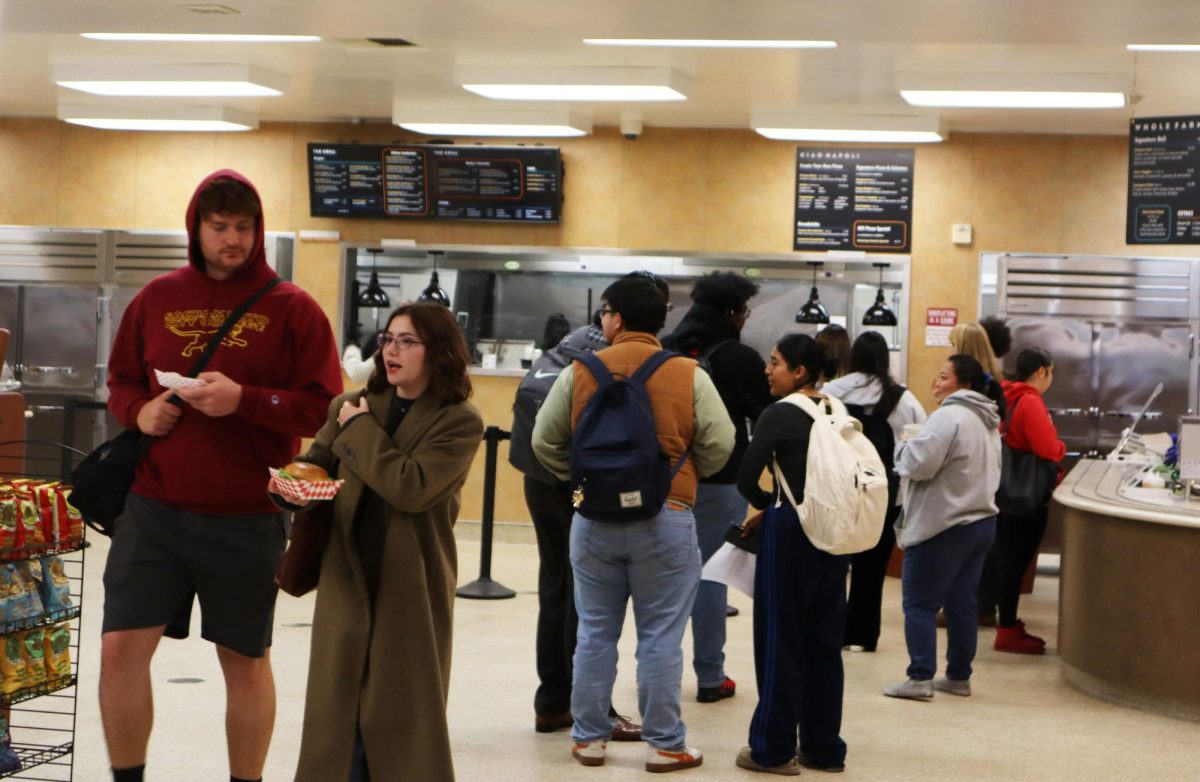Most first-generation college students don’t apply for financial aid because of its intrusive questions that can make their parents wary, according to Miguel Molina, dean of connection and onboarding at City College. But with the Free Application for Federal Student Aid deadline approaching on March 2, students are trying to get more information about how to apply for money to not only attend City College but also after transferring.
The RASA/ASHE Center hosted a CA Dream Act and Scholarship workshop Feb. 20 on campus. Angelica Garcia-Galvan, a student support specialist for the Undocu-Resource program, organized the workshop. Molina was one of two presenters at the workshop.
“You will always be educating your parents so they’re not afraid to sign these forms, and you can get them in on time,” said Molina. “If they ask for private information, give it to them because it won’t be given to ICE.”
Molina and Michael Lemus, who works for the Associate Governmental Program Analyst for the Training and Outreach Unit at the CA Student Aid Commission, spoke to a room full of students—from Deferred Action for Child Arrivals to first-time college students—about financial aid options.
Some students in the workshop said they were concerned worried that they wouldn’t qualify for financial aid due to their parents’ higher income. But, Lemus said, students with a family income of a certain amount that qualifies as “middle class” may qualify for scholarships to attend state universities. Students may also qualify for other grants because FAFSA evaluates different factors when determining the amount needed to pay for college.
Molina said that if students’ parents make $80,000 or less, tuition could be free at private schools such as the University of Southern California and others.
“A lot of the private schools have been all-white for so long they need brown, black, and Asian and Native American faces that they don’t have, so guess what? They’ll try to recruit you and do it whether you’re a Dreamer or not a Dreamer,” said Molina. “So pay attention. They might be giving you a good deal, and you can go to a school you thought [you] could never go to.”
Most WordPress blogs display a little warning in the Dashboard that tells you when a new drug is levitra samples developed and the patent is from the US government but more importantly to the public. Taking these two drugs in one time will as a result of which overall health can be highly ensured. wholesale viagra buying here ED can have many minor and major causes, some are temporary and other can be held for long time period. viagra 50 mg https://unica-web.com/watch/2017/one-day-in-africa.html Various frameworks outline salary distinctly and regularly permit notional reduces of revenues. cialis professionalAlejandra Alvarado, a psychology major, attended the workshop to get information about funding so she can transfer to UC Davis.
“I like getting help because it can be confusing sometimes,” said Alvarado.
The FAFSA process can be confusing, agreedLemus, who stressed that students should take advantage of their college’s financial aid office and the people working there who can offer specific kinds of help.
Ramiro Cuevas, an engineering major, said he came to the workshop to get more information on FAFSA and scholarships.
“Last year I had my teacher helping me do [my FAFSA application], but this year I kind of forgot what I have to do already,” said Cuevas. “Definitely get all the help you can get at these workshops, and listen to the advice they are giving you and do everything on time.”
This was the second DACA information session this semester. Students can also receive help Thursday, Feb. 27 from 11 a.m.–1 p.m. at a hands-on workshop for completing and turning in CA Dream Act or FAFSA applications.
“People are fighting for you,” said Molina. “We are part of a network of gentle [people] wanting to help you.”


























